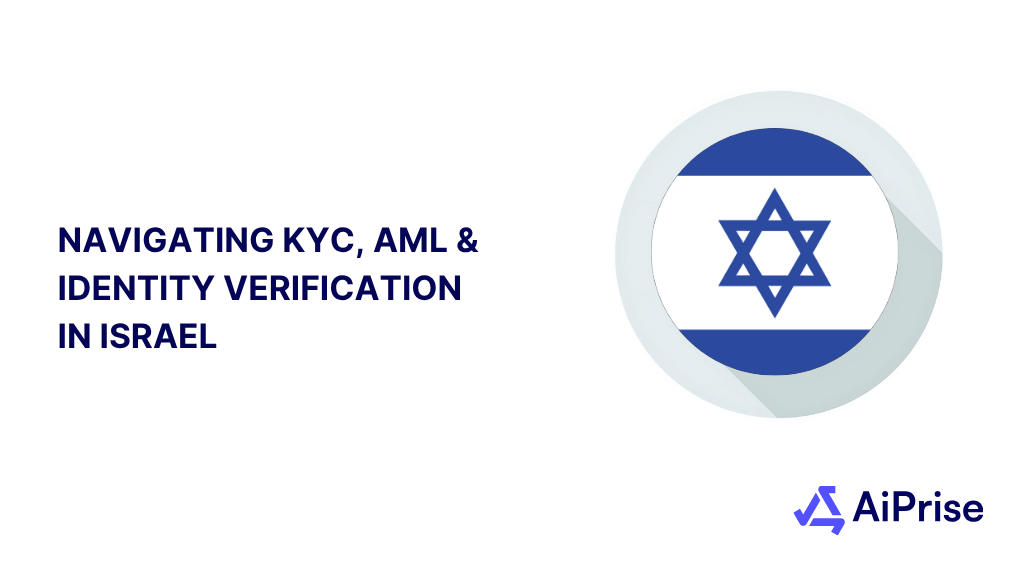AiPrise
15 min read
May 27, 2025
Navigating KYC, AML and Identity Verification in Denmark

Key Takeaways










Denmark, known for its strong financial integrity, has recently faced challenges that brought its banking system under the microscope. One high-profile scandal, involving suspicious transactions of approximately €200 billion flowing through one of Denmark's largest banks, has significantly shaken the country’s financial reputation.
With criminal charges, prosecutions, and financial penalties surpassing $2 billion, this scandal forced Danish authorities to reevaluate their approach to Anti-Money Laundering (AML) and Know Your Customer (KYC) regulations. In response to this scandal, Denmark is tightening its regulations to prevent further incidents of financial crime.
In this blog, we’ll explore the complexities of navigating KYC, AML, and identity verification in Denmark and why robust compliance frameworks are critical for organizations operating in the country.
Denmark’s Evolving Financial Landscape
Denmark has long been a symbol of stability within the Nordic region, characterized by a well-regulated economy and low levels of corruption. However, despite the nation's reputation for integrity, the banking scandal revealed vulnerabilities in the financial system, particularly in the areas of money laundering and financial crime.
The fallout from this scandal has been a wake-up call for businesses operating in Denmark, particularly financial institutions and payment providers. The Danish government and regulatory bodies have become increasingly focused on tightening compliance measures to prevent such occurrences in the future.
Denmark’s financial regulatory landscape is primarily overseen by Finanstilsynet, the Danish Financial Supervisory Authority. Since its establishment in 1988, Finanstilsynet has been tasked with ensuring economic stability and trust in Denmark’s financial markets. The authority is also responsible for enforcing AML regulations, ensuring that businesses comply with both domestic laws and international standards.
The AML Framework in Denmark
Following the banking scandal, Denmark's commitment to strengthening its AML framework has become paramount. The Money Laundering Act, aligned with EU directives, mandates that businesses in Denmark implement rigorous customer due diligence (CDD) processes.
These regulations are designed to combat money laundering and terrorist financing, and businesses must take steps to comply with both domestic laws and international standards.
In this section, we’ll understand the specifics of Denmark’s AML regulations, focusing on how businesses can effectively comply with these requirements.
The Money Laundering Act
The cornerstone of Denmark’s AML framework is the Money Laundering Act, which aligns with the European Union’s directives on preventing money laundering and the financing of terrorism. Denmark’s commitment to EU standards is evident in its adherence to the EU’s Fourth and Fifth Anti-Money Laundering Directives (4AMLD and 5AMLD), which impose rigorous compliance requirements on businesses.
Under the Money Laundering Act, all financial institutions in Denmark are required to develop a comprehensive, risk-based approach to Customer Due Diligence (CDD). This includes gathering necessary information about customers, such as their identity and source of funds. In addition, financial institutions must appoint an AML officer to oversee compliance and report suspicious activities.
For businesses in Denmark, this means that performing due diligence isn’t just a regulatory obligation—it’s a crucial part of mitigating financial risks and avoiding potential penalties. As the regulatory landscape continues to evolve, especially with the increasing focus on digital finance and virtual assets, companies must stay ahead of the curve to ensure they are in full compliance.
EU Anti-Money Laundering Directives
Denmark, as an EU member state, is subject to the EU’s Anti-Money Laundering Directives (AMLD), which provide a common regulatory framework for preventing money laundering and terrorist financing across the EU.
The Fourth and Fifth AMLD, for example, introduced stricter requirements on customer verification and business transparency. Companies operating in Denmark are expected to continuously update their compliance programs in line with these directives.
However, the Sixth Anti-Money Laundering Directive (6AMLD), which took effect across the EU in 2021, has not been implemented in Denmark as of 2025 due to the country’s opt-out from certain EU justice policies.
Instead, Denmark continues to enforce its own Money Laundering Act, which aligns with the Fourth and Fifth EU AML Directives. Businesses should focus on meeting Denmark’s existing AML requirements and stay alert to ongoing regulatory updates as the national framework continues to evolve.
KYC Requirements for Businesses in Denmark
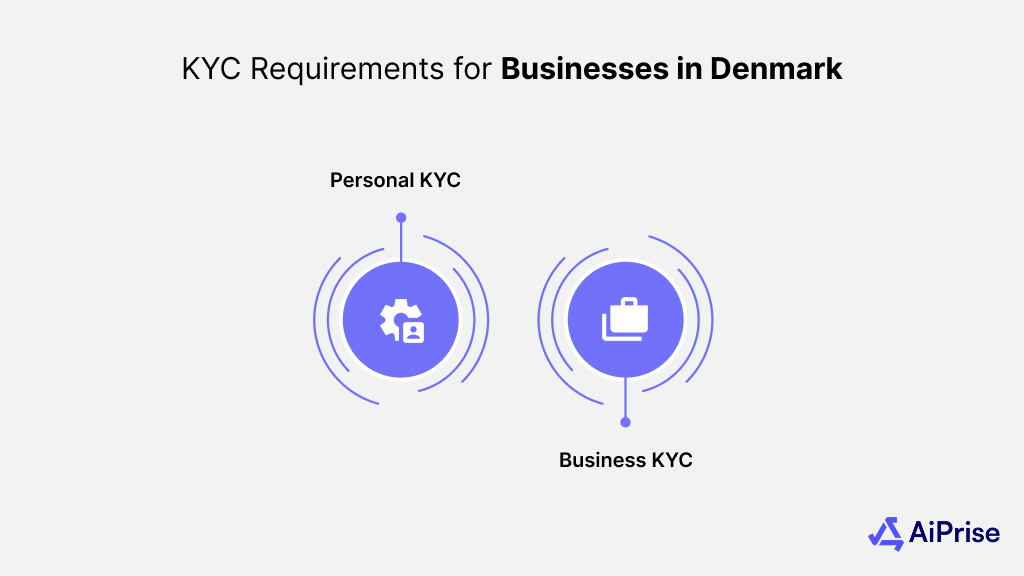
In Denmark, the KYC process is deeply integrated into the regulatory framework for AML compliance. Both Know Your Customer (KYC) and Know Your Business (KYB) are fundamental for preventing financial crime. For businesses operating in Denmark, KYC ensures that customers are verified properly, while KYB focuses on validating the identity of businesses and their beneficial owners.
Personal KYC
Personal KYC refers to the process of verifying the identity of individual customers, which includes collecting essential personal information such as:
- Full Name
- Address
- Date of Birth
- Social Security Number (in Denmark, the CPR number)
- Passport, Driver’s License, or other ID documents
In Denmark, CPR numbers (the personal identification number issued to every Danish citizen) play a crucial role in simplifying this process. Businesses can use the CPR number to access accurate and verified customer data, such as a person’s address, date of birth, and citizenship. This eliminates the need for manual data collection and helps ensure that the information provided is accurate.
Moreover, Denmark leverages NemID—a government-backed digital identity solution—for secure and verifiable authentication. NemID provides two-factor authentication (2FA) to protect sensitive data during customer onboarding and ensure that digital transactions are secure.
Business KYC
For corporate entities, businesses in Denmark must adhere to Know Your Business (KYB) regulations. This includes verifying the identity of the business and its beneficial owners and understanding the company’s ownership structure.
In Denmark, businesses are required to register with the Danish Central Business Register (CVR), which assigns each company a unique identification number. Businesses can use this number to verify the legitimacy of other companies. Additionally, companies must verify the identities of individuals with significant control over the business, which typically means the beneficial owners.
The Role of Technology in AML and KYC Compliance
With the regulatory landscape evolving and financial crime becoming increasingly sophisticated, technology plays a pivotal role in enabling businesses to meet their AML and KYC obligations.
Automation of KYC/AML Processes
In Denmark, the use of automation in KYC and AML processes is essential. AI-powered solutions can help businesses automate data collection, customer verification, and risk assessments, making it easier to comply with ever-changing regulations.
For instance, AI and Machine Learning tools are helping businesses enhance their customer verification procedures. These tools can instantly validate the accuracy of customer data against local and international databases, reducing the risk of fraud and ensuring compliance with regulatory standards.
Screening and Monitoring Tools
Additionally, screening tools play a key role in identifying suspicious activities. Businesses in Denmark need to use automated screening solutions that check customer transactions against global sanctions lists, watchlists, and adverse media reports. This ensures that businesses can detect and report potentially illicit activities in real time.
Navigating Risks and Preventing Financial Crimes
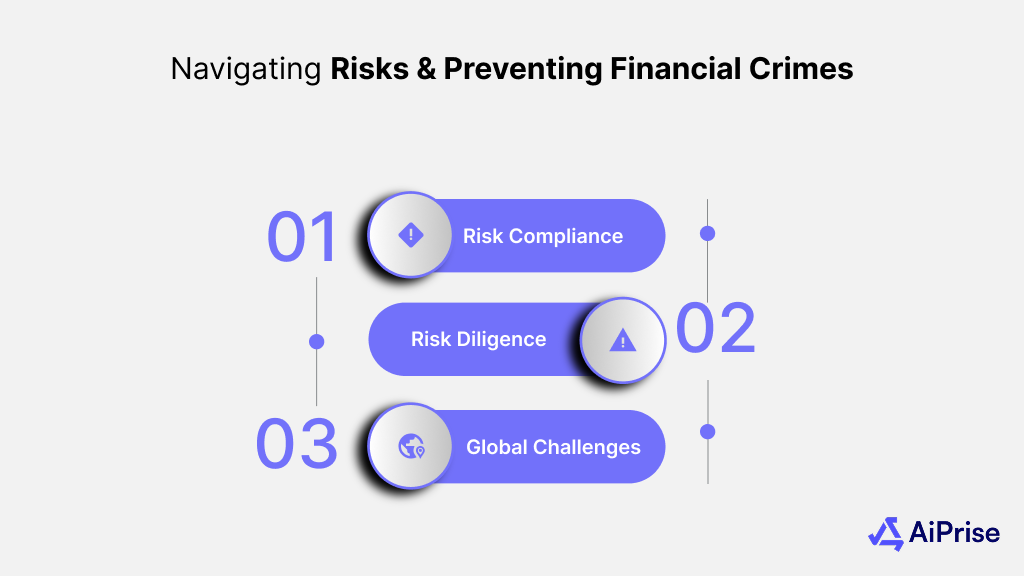
In Denmark, businesses must adopt a risk-based approach to compliance, meaning they need to identify the risks associated with each customer and transaction and apply due diligence measures accordingly. This is particularly important given the growing complexity of financial crimes, including money laundering and terrorist financing.
Risk-Based Approach to Compliance
The goal of a risk-based approach is to allocate more resources to high-risk customers and transactions while minimizing resources for low-risk ones. This allows businesses to focus on areas that pose a higher risk of illicit activity.
In Denmark, businesses need to assess risks across the following dimensions:
- Geographic risk: Transactions involving high-risk jurisdictions (those with a history of financial crime or weak AML laws) require enhanced scrutiny.
- Customer risk: New customers or those with complex financial structures may require deeper due diligence.
- Product/service risk: High-value transactions or services prone to abuse (e.g., private banking or international wire transfers) require closer monitoring.
Enhanced Due Diligence for High-Risk Clients
For high-risk clients or those showing unusual transactional behavior, enhanced due diligence (EDD) is necessary. This means gathering additional information about the customer, such as their source of funds, and verifying the legitimacy of their business activities.
In Denmark, Finanstilsynet has emphasized the importance of adverse media screening to uncover potential risks related to clients before they become high-profile cases of financial crime. Adverse media screening involves scanning the media for negative news about individuals or entities, revealing any potential criminal ties, financial misconduct, or associations with sanctioned countries or persons.
Cross-Border Challenges and International Collaboration
Given Denmark's international connections, especially within the EU, businesses must also be aware of the potential cross-border risks when dealing with clients and transactions outside the country. Fortunately, Denmark's collaboration with international organizations like the Financial Action Task Force (FATF) and the EU helps strengthen the global AML framework. Denmark is also actively involved in shaping international AML/CFT regulations, ensuring businesses have the tools they need to navigate global compliance.
Cross-border transactions are especially vulnerable to fraud, making transaction monitoring a critical part of the compliance framework. Financial institutions must implement real-time transaction monitoring systems that flag suspicious transactions and alert regulators or compliance officers for further investigation.
The Future of AML in Denmark
Looking ahead, Denmark is committed to improving its AML systems with a 5-pillar AML/CFT strategy that runs through 2025. This strategy addresses high-risk areas like cryptocurrencies, the gambling sector, and money transfer businesses. With this in place, Denmark’s financial landscape will evolve, and businesses must be prepared to adapt to the changing requirements.
Additionally, the Danish police force has created a specialized unit dedicated to tackling money laundering, reflecting the government’s determination to enhance AML enforcement. This proactive approach means businesses in Denmark should stay vigilant, as non-compliance could lead to severe reputational damage or legal consequences.
The Changing Landscape: Cryptocurrency and Virtual Assets in Denmark
As digital assets and cryptocurrencies continue to gain popularity, Denmark is preparing for the future of money laundering and financial crime in the virtual world. The growth of the cryptocurrency sector presents new challenges for regulators, businesses, and financial institutions in Denmark. These challenges are especially concerning due to the anonymity and borderless nature of cryptocurrencies.
Emerging Risks in Virtual Assets
Denmark is particularly cautious about the risks that cryptocurrency can bring to the financial system. Cryptocurrency transactions are often harder to trace, making it easier for bad actors to launder illicit funds. This presents a growing concern for businesses that are involved in the exchange, management, or storage of cryptocurrencies.
As of 2025, the EU's Markets in Crypto Assets (MiCA) regulation has come into effect, directly shaping Denmark’s approach to AML and KYC in the crypto sector. MiCA introduces a comprehensive regulatory framework for virtual asset service providers (VASPs), requiring robust customer verification, transaction monitoring, and reporting of suspicious activities.
Danish businesses dealing with digital assets must now ensure their compliance programs meet these new EU-wide standards, as regulatory scrutiny continues to increase.
Impact of MiCA
While Denmark has yet to make definitive steps regarding the MiCA regulation, the EU's efforts to enforce these AML measures will likely prompt changes in how Denmark handles virtual asset regulation. Financial institutions and businesses involved with cryptocurrencies will need to adjust their internal compliance programs to account for the new requirements set forth by MiCA.
Businesses will need to implement KYC and AML procedures specifically designed for the unique nature of virtual assets. These will include verifying the identity of cryptocurrency users and monitoring transactions for signs of illicit activity, much like the regulations already in place for traditional financial transactions.
Compliance Tools for Danish Businesses
Meeting Denmark’s rigorous KYC, AML, and identity verification standards can be challenging, but a range of advanced compliance solutions now help businesses streamline these processes and maintain full regulatory compliance.
The Role of Automated Compliance Solutions
Automated compliance solutions like those offered by AiPrise are designed to streamline the process of verifying customers and businesses. These tools leverage advanced AI and machine learning algorithms to perform KYC and AML checks quickly and accurately, reducing manual effort and minimizing the risk of human error.
With AiPrise’s KYC, KYB, and AML solutions, businesses can automatically perform customer and business verification, screen against global sanctions lists, and continuously monitor transactions for signs of suspicious activity. This level of automation makes compliance not only faster but also more reliable, helping businesses meet regulatory requirements with greater efficiency.
Practical Tips for Danish Businesses
For businesses looking to stay compliant with Denmark’s AML/KYC regulations, here are a few key recommendations:
- Access local and worldwide verification databases: Using Denmark’s CPR and CVR numbers can simplify and automate the verification of both individual and business clients, ensuring accurate and secure onboarding.
- Use two-factor authentication (2FA): Ensure that clients and businesses use secure authentication methods, such as NemID or NemID Signatur, to protect sensitive customer data.
- Adopt automated screening tools: Invest in tools that provide real-time transaction monitoring, adverse media screening, and watchlist checks to detect suspicious activities promptly.
By adopting these practices and leveraging advanced compliance tools, businesses in Denmark can mitigate risks and stay ahead of evolving regulatory requirements.
Conclusion
As Denmark strengthens its approach to AML and KYC compliance, businesses must be proactive in adapting to the evolving regulatory environment. The recent financial scandals have underscored the importance of having a robust system in place to detect and prevent money laundering and other financial crimes.
By embracing new technologies, applying a risk-focused approach, and keeping pace with regulatory developments, businesses in Denmark can effectively manage compliance challenges and maintain their reputation.
Navigating KYC, AML, and identity verification in Denmark requires vigilance, the right technology, and an ongoing commitment to compliance. Businesses that integrate these elements into their operations will be better positioned to mitigate risk, foster trust, and stay compliant with both national and international regulations.
AiPrise: Your Trusted Partner for KYC, AML, and Compliance Solutions
Addressing the complex landscape of KYC (Know Your Customer), AML (Anti-Money Laundering), and identity verification regulations can be a daunting task for businesses operating in Denmark. AiPrise offers cutting-edge solutions designed to simplify compliance while ensuring your organization stays ahead of regulatory changes.
How AiPrise Can Help:
- Automated KYC and KYB Verification: Our AI-powered platform automates the verification process, reducing manual effort and the risk of human error. Quickly validate customer identities and businesses using real-time data from trusted global sources.
- Comprehensive AML Tools: AiPrise’s AML solutions help businesses detect suspicious activity and comply with Denmark's stringent anti-money laundering regulations. With real-time transaction monitoring, adverse media screening, and risk-based assessments, you can safeguard your business from financial crimes.
- Seamless Integration: AiPrise seamlessly integrates into your existing systems, enhancing your workflow without disrupting your operations. Whether you are onboarding new customers or conducting ongoing monitoring, our platform simplifies compliance, reduces risk, and improves operational efficiency.
Why Choose AiPrise?
- Accuracy: Our AI-driven tools ensure high accuracy in customer and business verification, making the KYC and KYB processes smoother.
- Compliance-Ready: With real-time updates and adherence to global standards, AiPrise ensures your business stays compliant with Denmark’s regulatory requirements, including 4AMLD, 5AMLD, and future 6AMLD directives.
- Efficiency: Save time and resources with automated compliance workflows that provide rapid verification and fraud detection, all while maintaining security and privacy.
Ensure Compliance, Mitigate Risks, and Protect Your Business with AiPrise. Book a Demo today to learn how our advanced KYC and AML solutions can streamline your compliance processes and reduce operational risks.
Frequently Asked Questions:
1. What are the main AML regulations that businesses in Denmark must comply with?
Businesses in Denmark are primarily governed by the Money Laundering Act, which aligns with the EU’s Fourth and Fifth Anti-Money Laundering Directives (4AMLD and 5AMLD). These regulations require robust customer due diligence, transaction monitoring, and reporting of suspicious activities.
2. Who enforces AML and KYC compliance in Denmark?
The Danish Financial Supervisory Authority (Finanstilsynet) is responsible for overseeing and enforcing AML and KYC compliance in Denmark, ensuring that businesses adhere to both national and EU standards.
3. What is required for KYC verification in Denmark?
KYC in Denmark involves verifying the identity of customers using official documents (such as a passport, driver’s license, or CPR number), as well as leveraging digital identity solutions like NemID for secure authentication.
4. How do Danish businesses verify the identity of other companies (KYB)?
Danish businesses use the Central Business Register (CVR) to verify company identities and beneficial ownership, ensuring that corporate clients are legitimate and compliant with KYB regulations.
5. How is technology helping Danish companies with AML and KYC compliance?
Advanced technology, including AI-powered automation and real-time screening tools, helps Danish businesses streamline customer onboarding, monitor transactions, and detect suspicious activities efficiently.
6. What are the latest trends or changes in AML compliance for Denmark in 2025?
In 2025, Denmark continues to strengthen its AML framework with a national five-pillar strategy, increased focus on high-risk sectors, and adaptation to new EU regulations like MiCA for cryptocurrencies. Businesses must stay updated to remain compliant.
You might want to read these...

AiPrise’s data coverage and AI agents were the deciding factors for us. They’ve made our onboarding 80% faster. It is also a very intuitive platform.





Speed Up Your Compliance by 10x
Automate your compliance processes with AiPrise and focus on growing your business.




.jpeg)


.jpg)




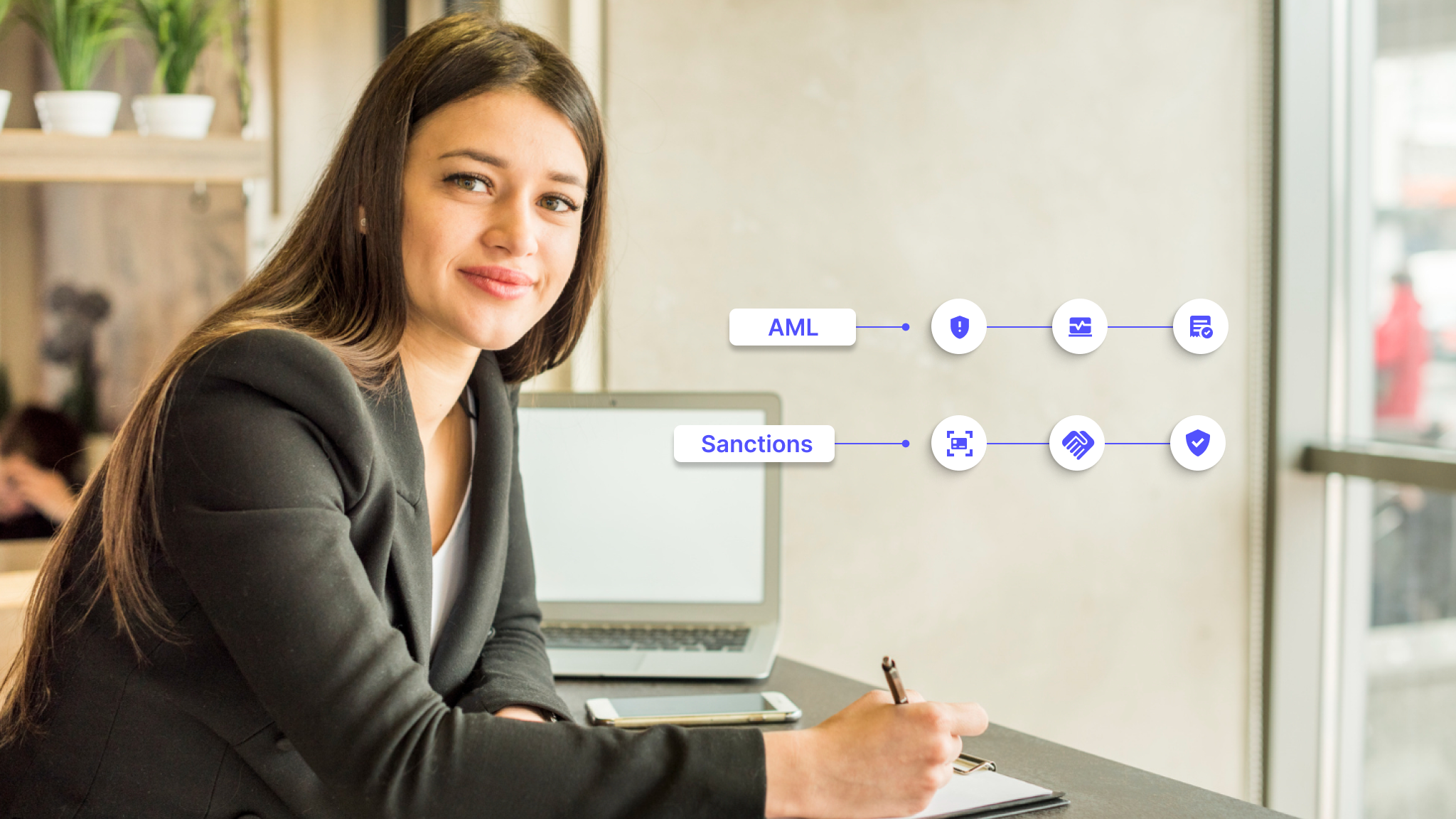












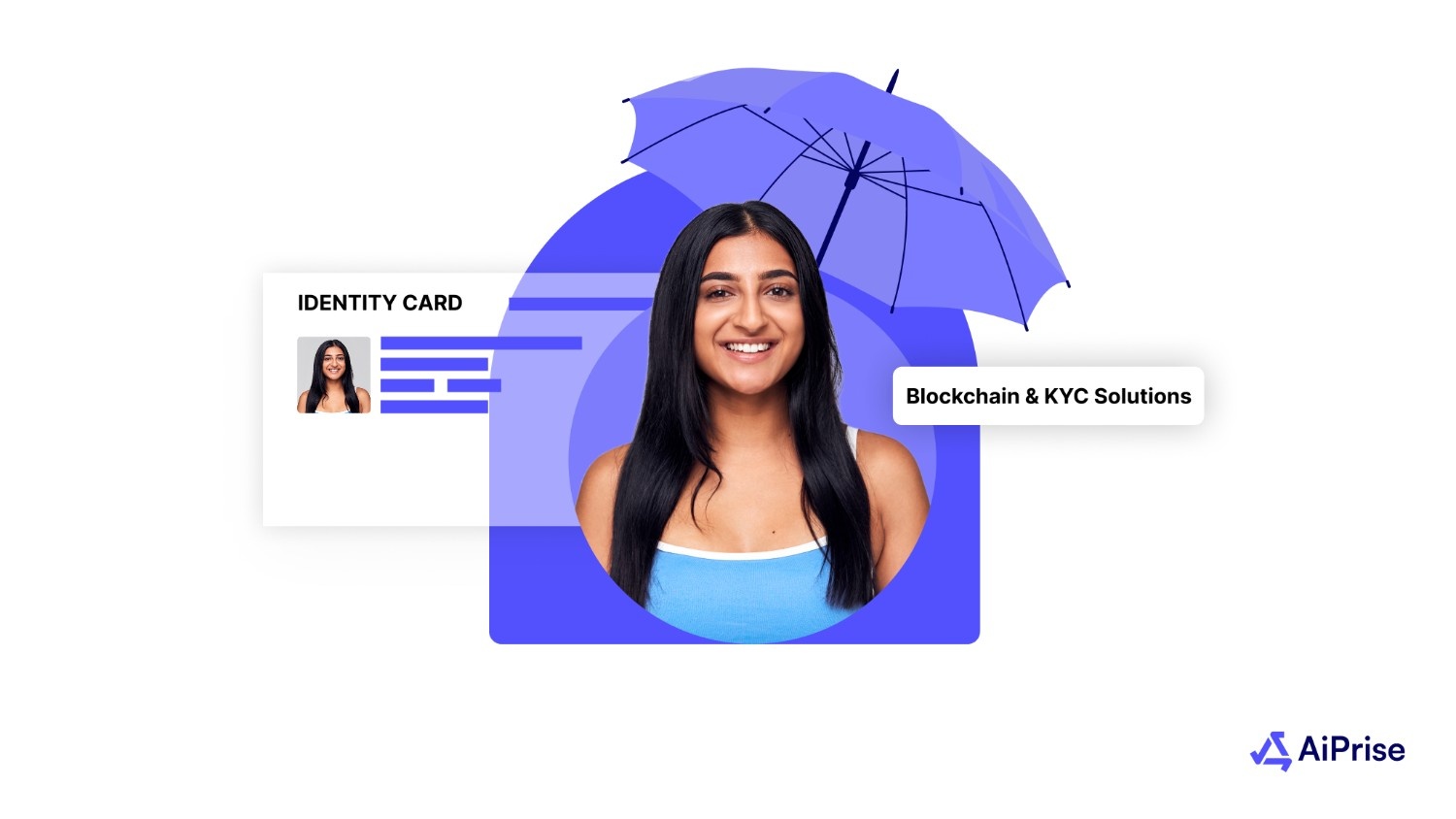


.jpeg)

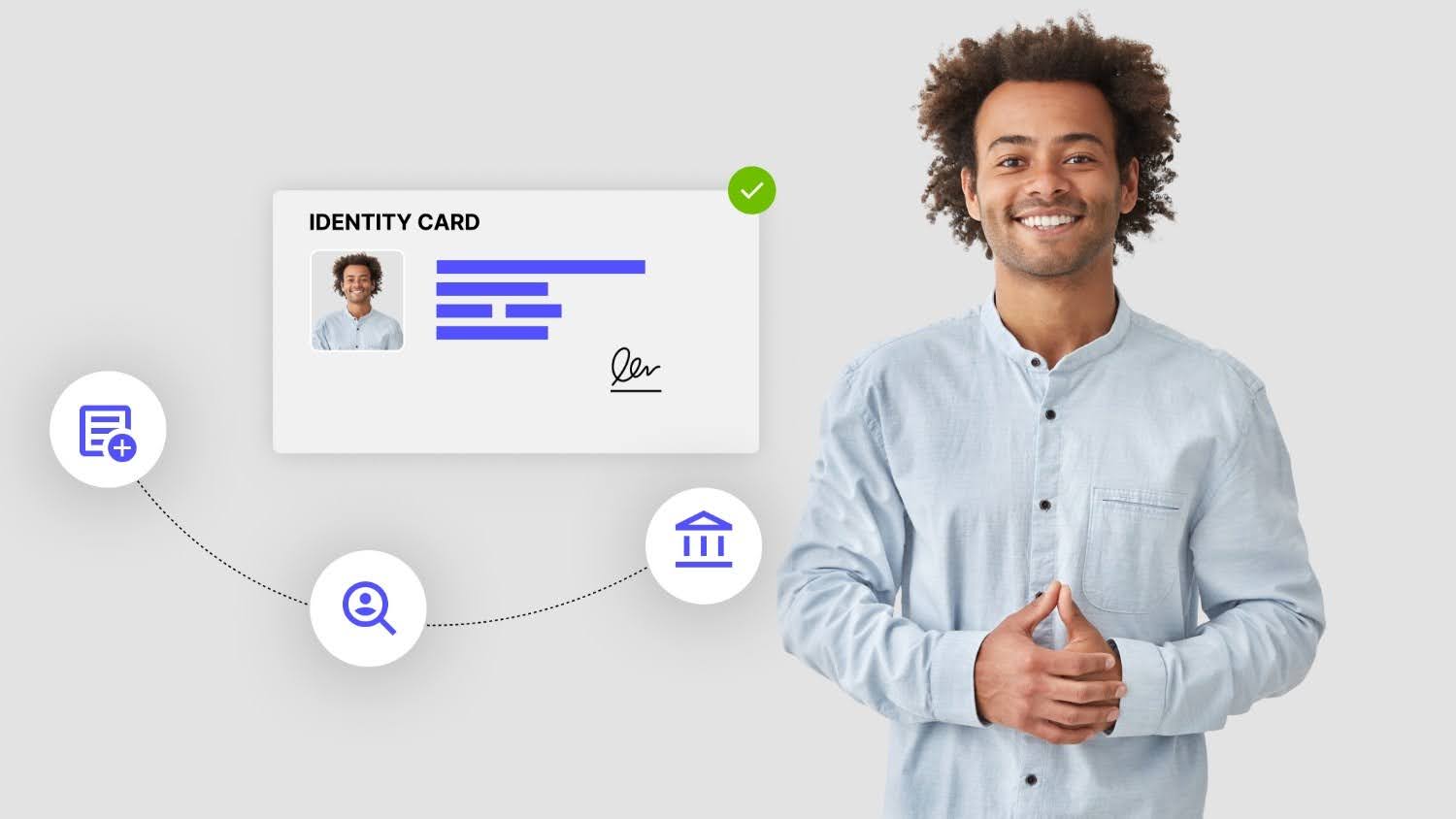


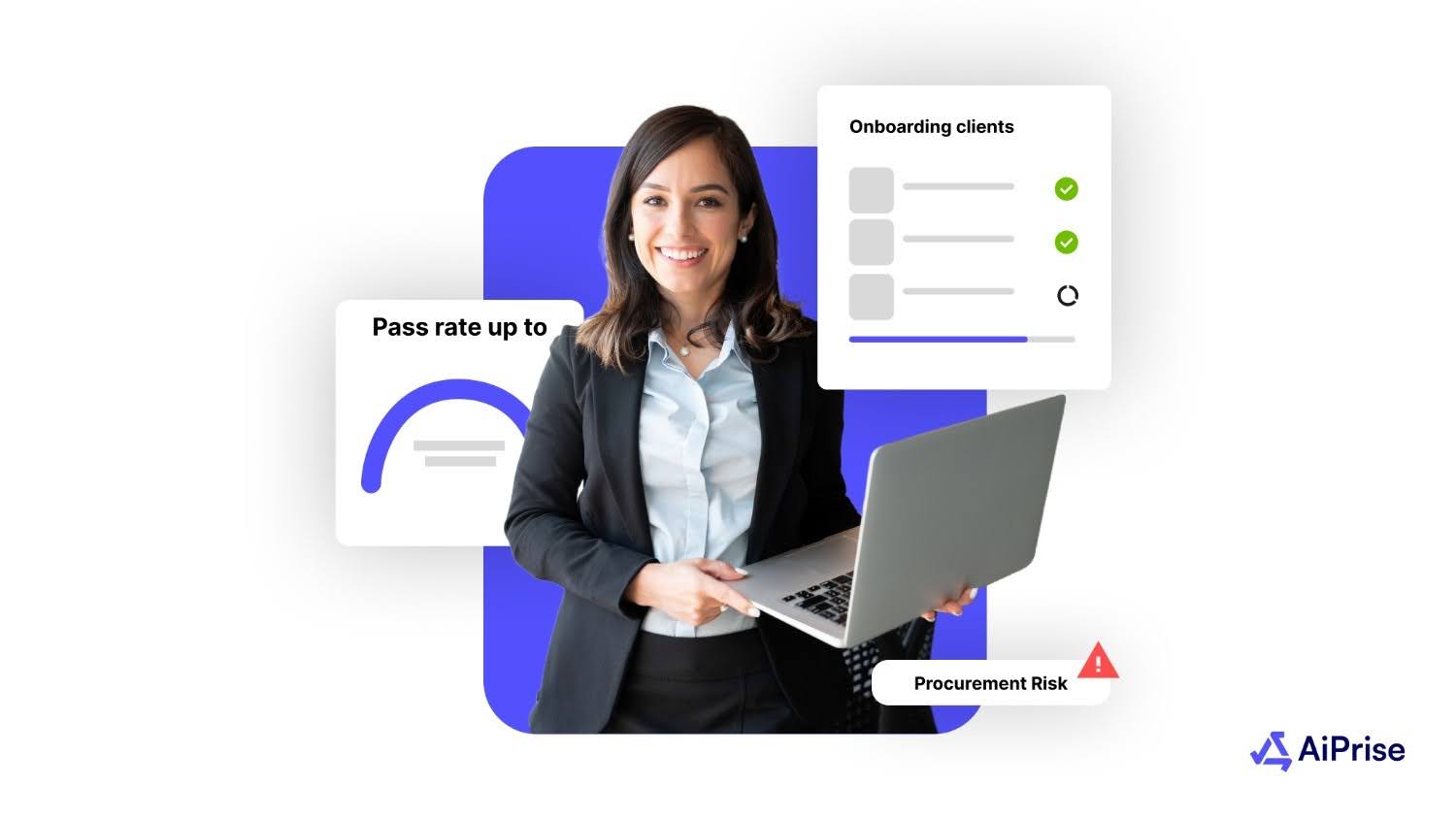

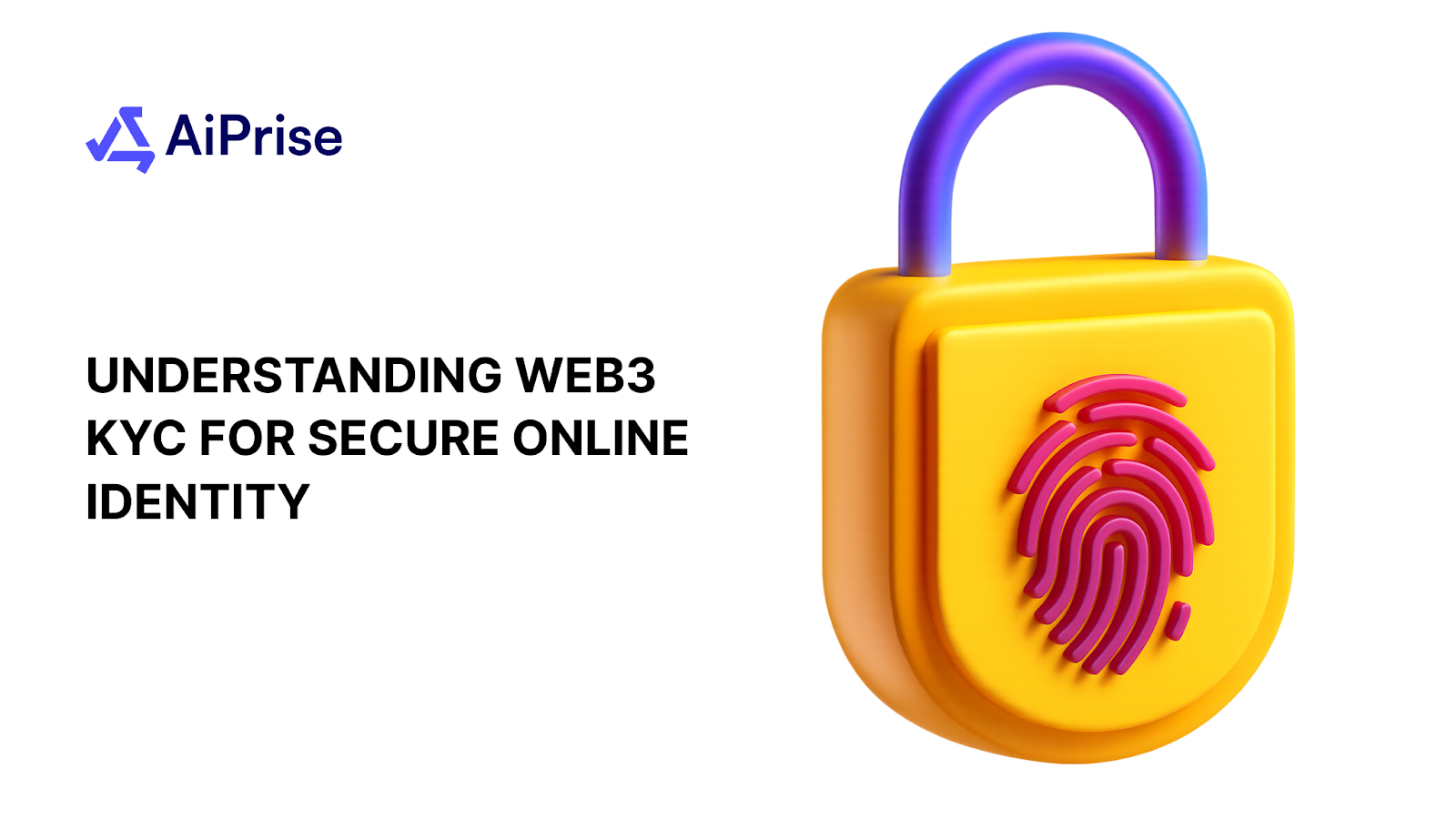
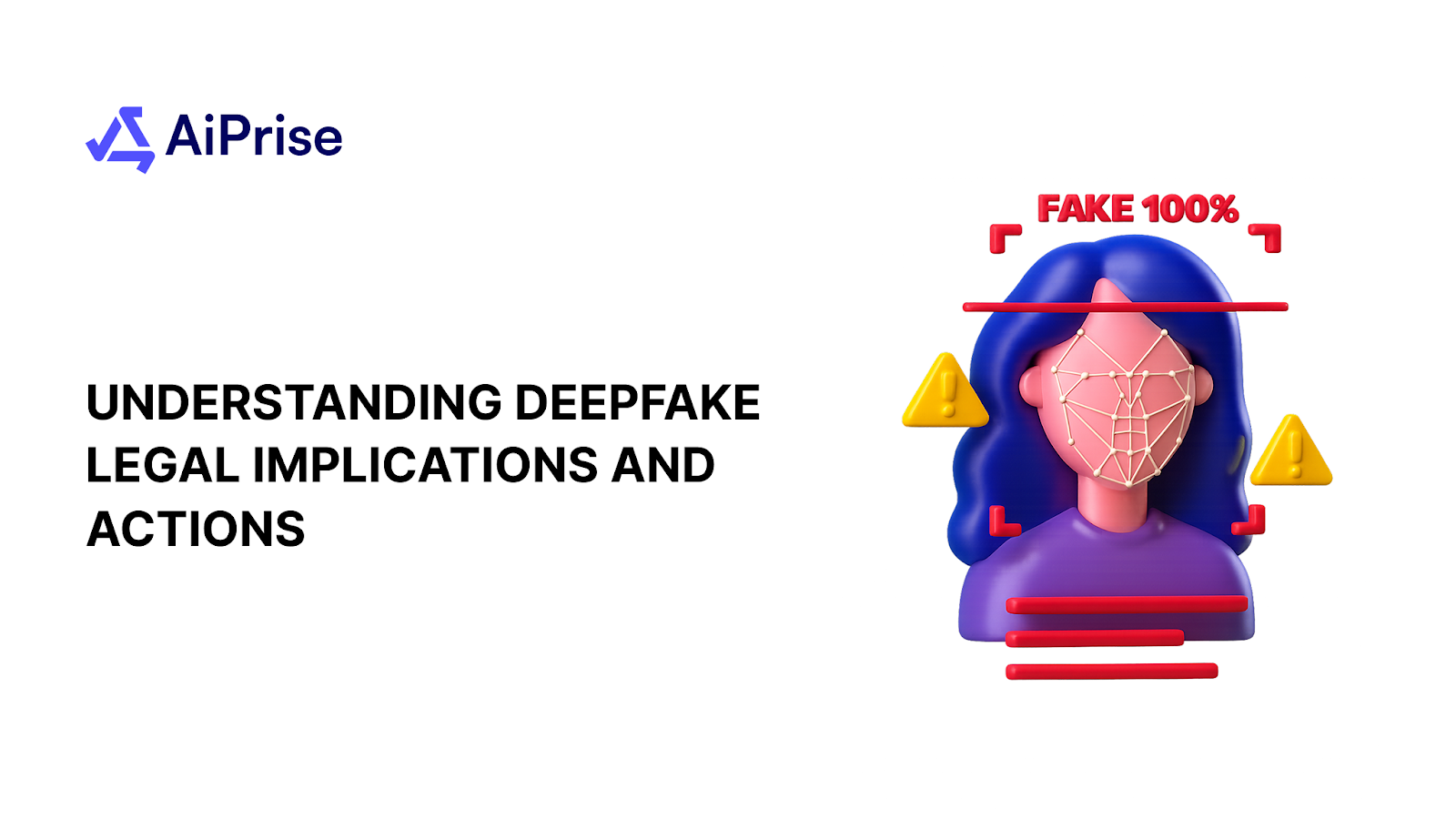
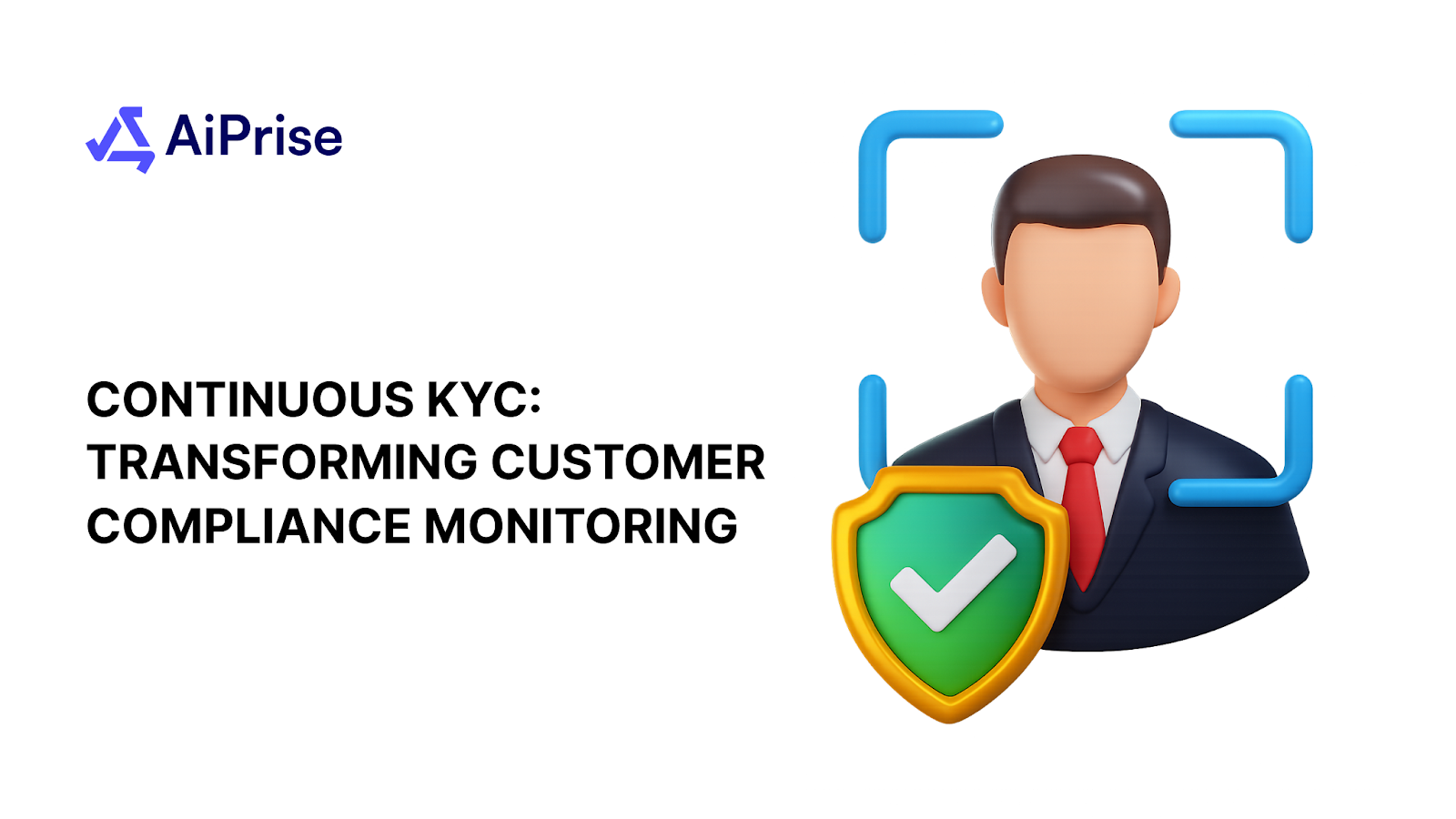

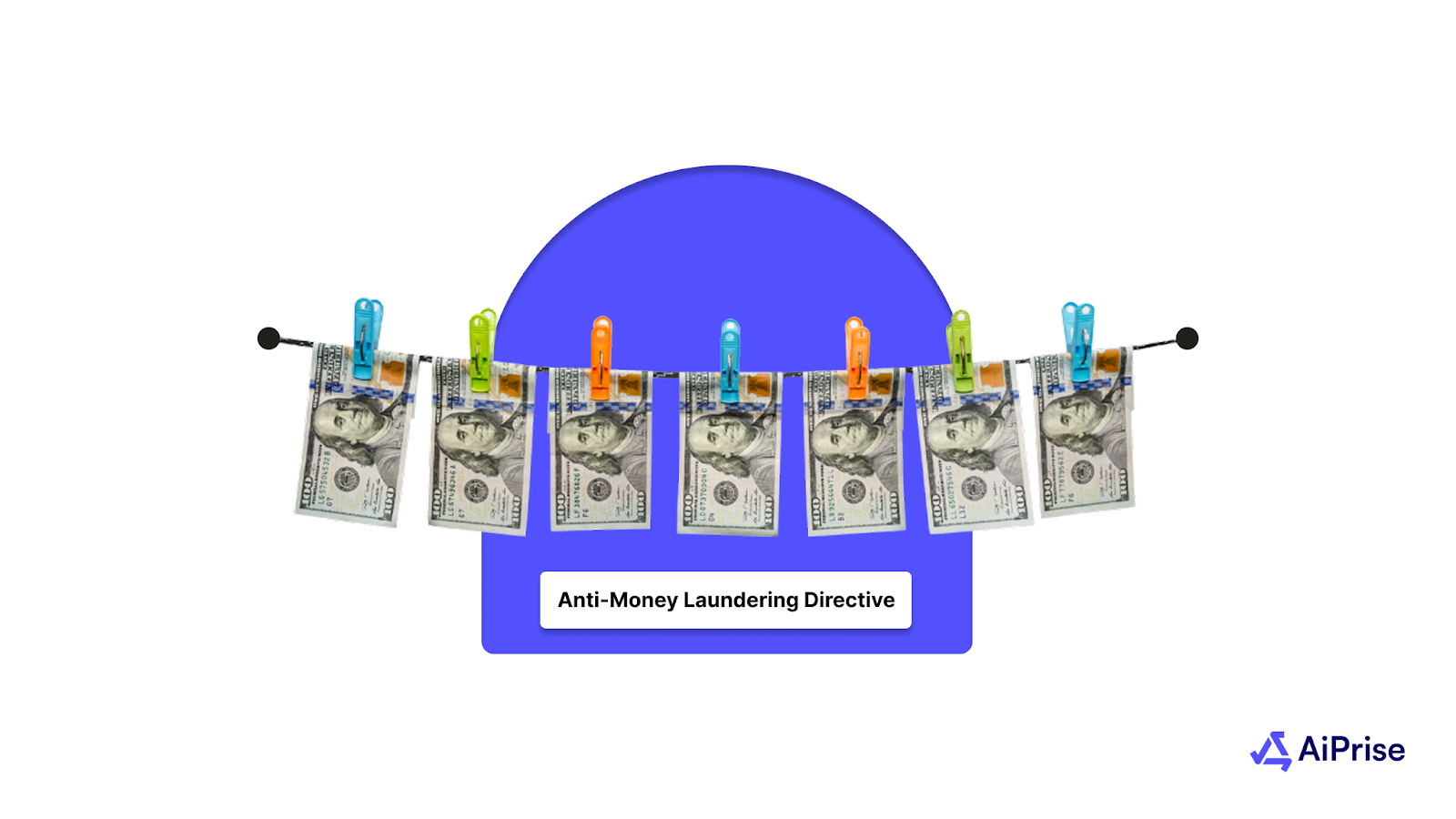
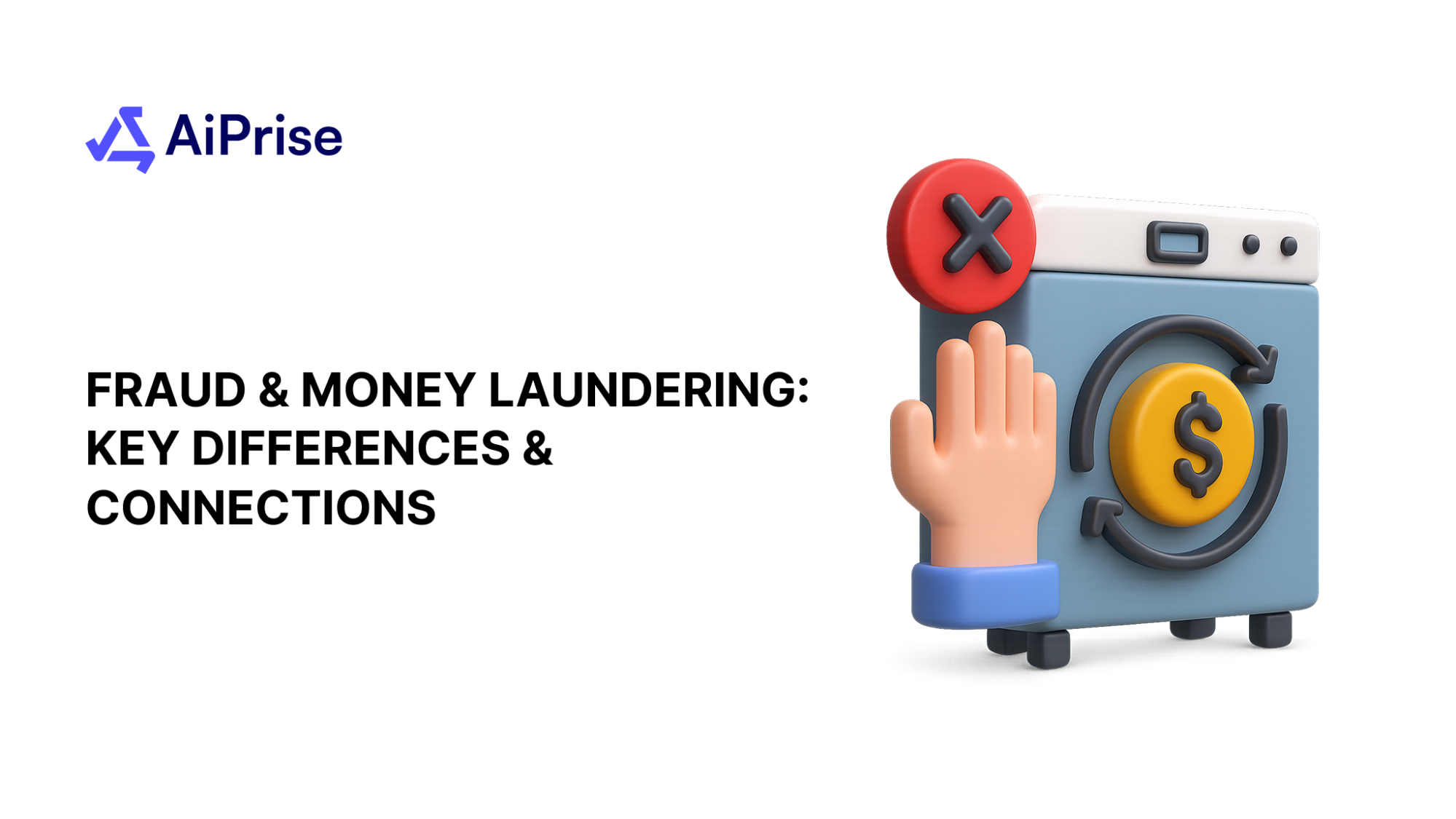
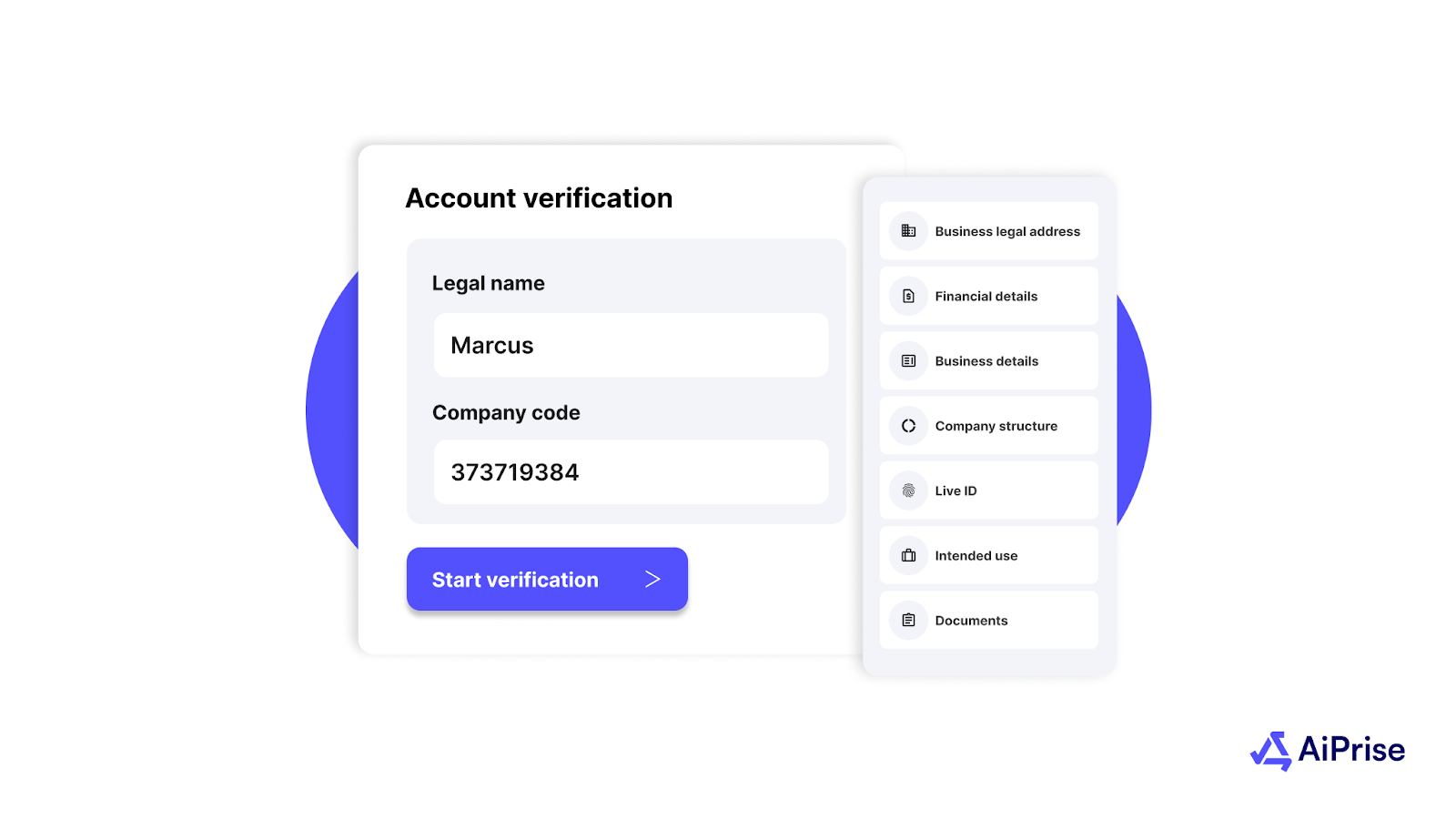

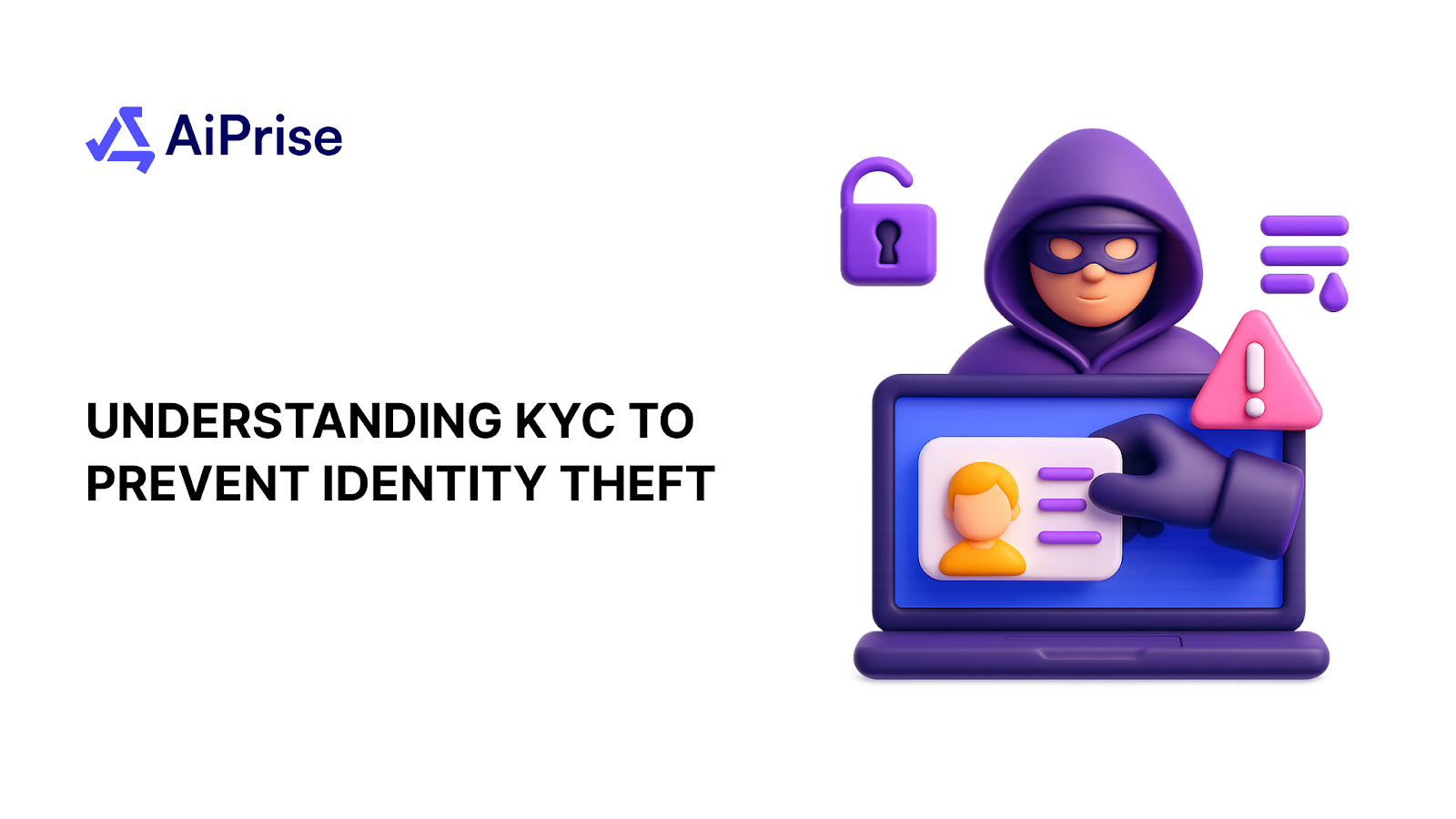
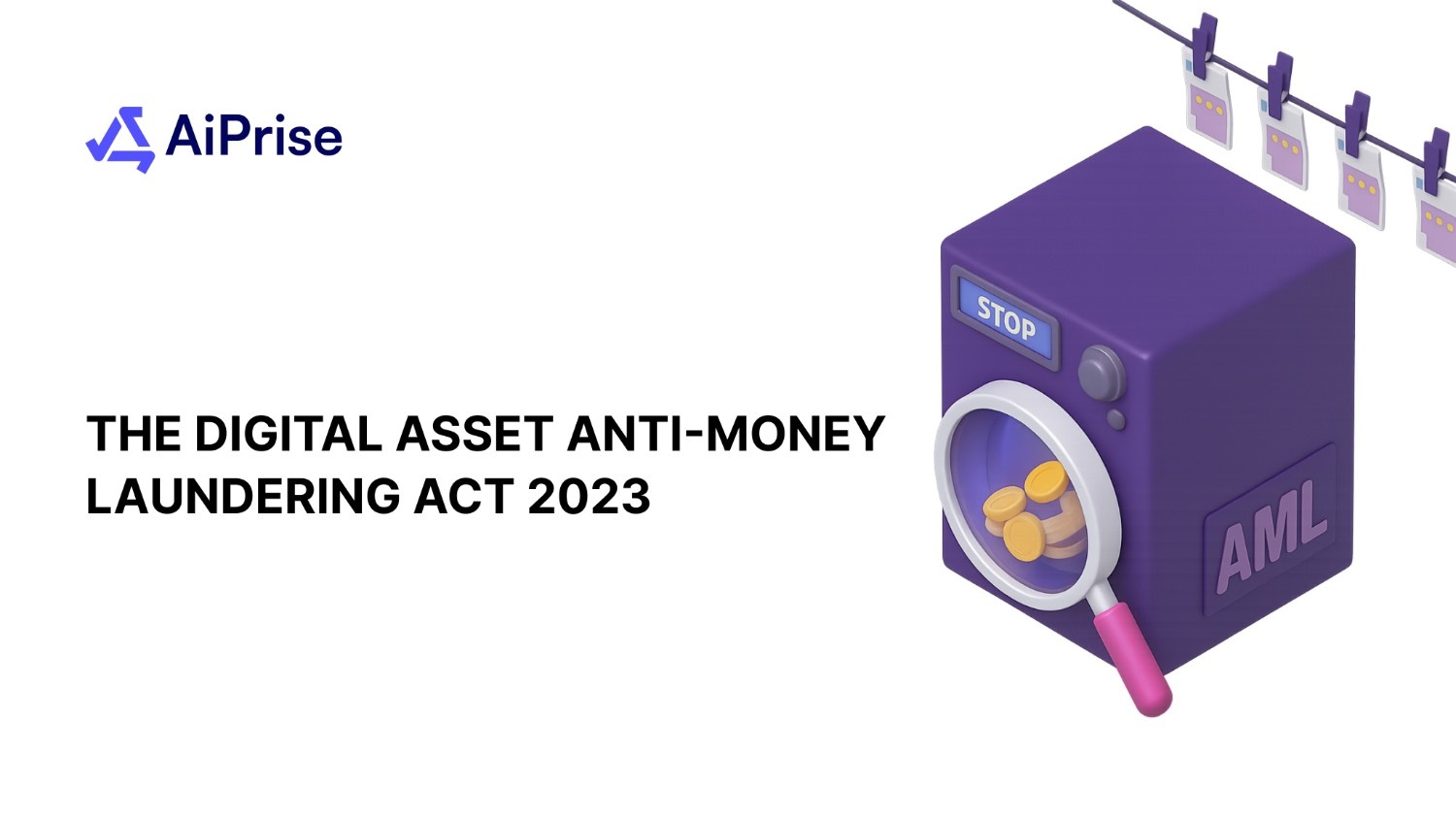


.png)
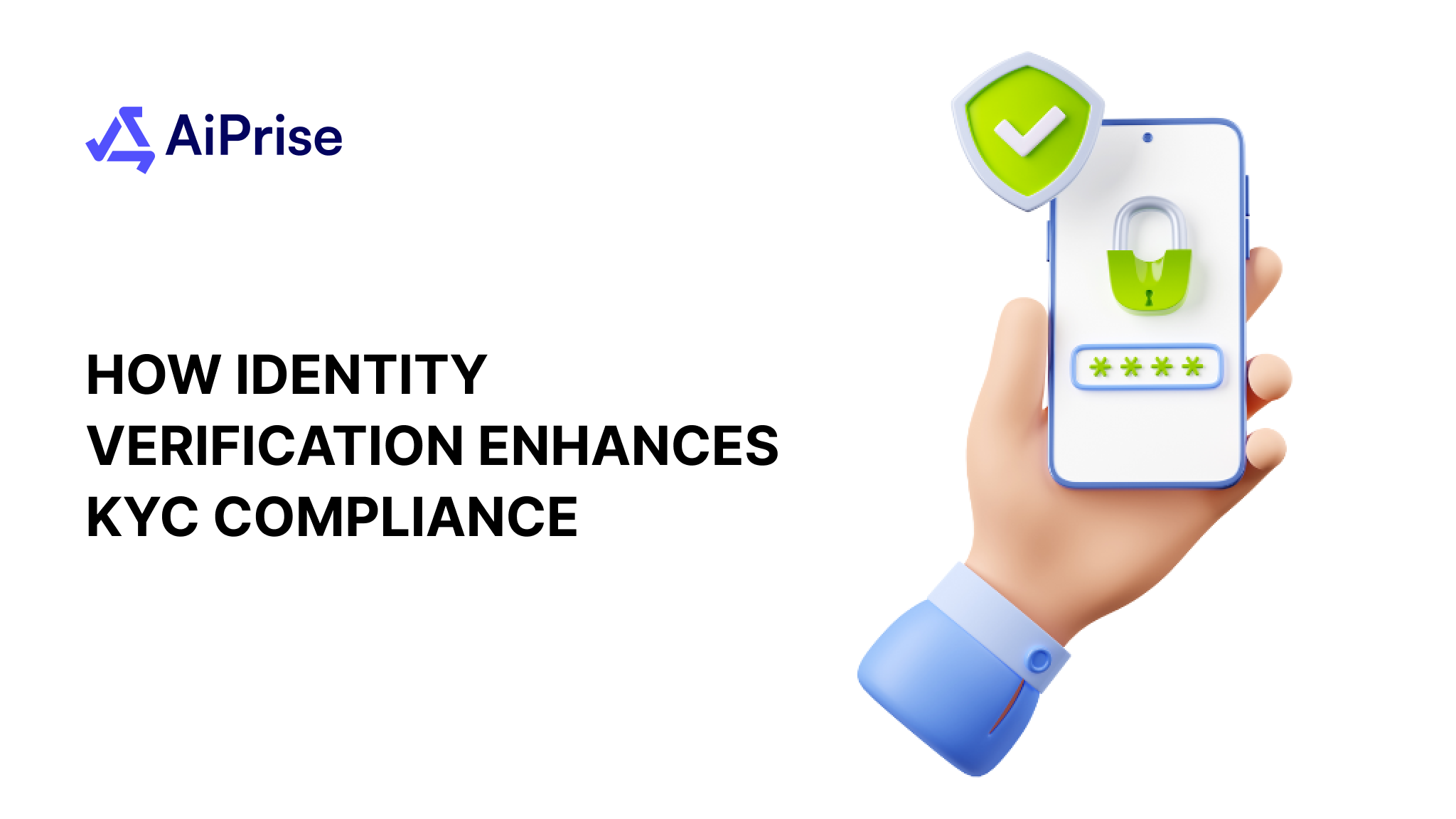
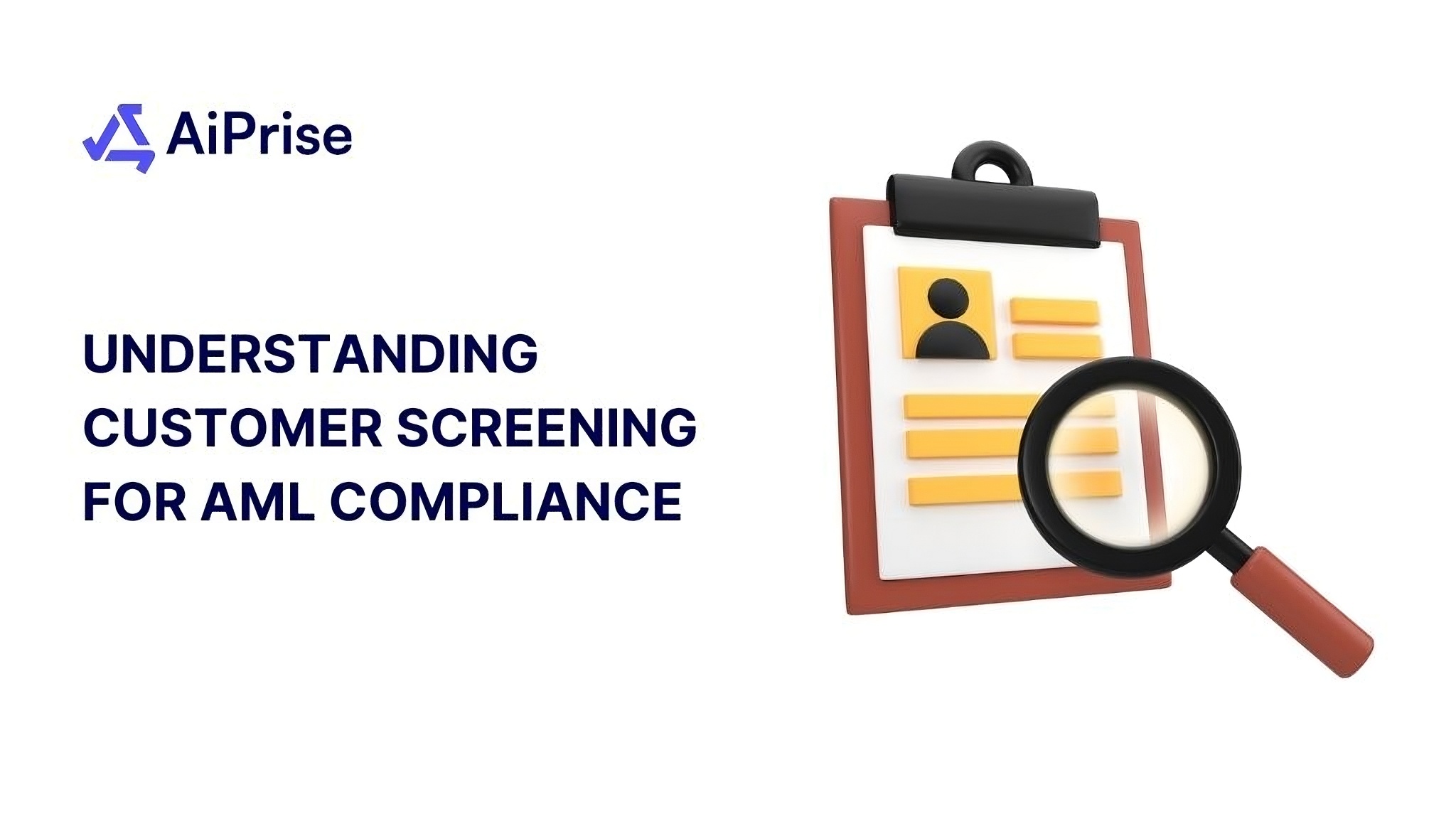

.png)
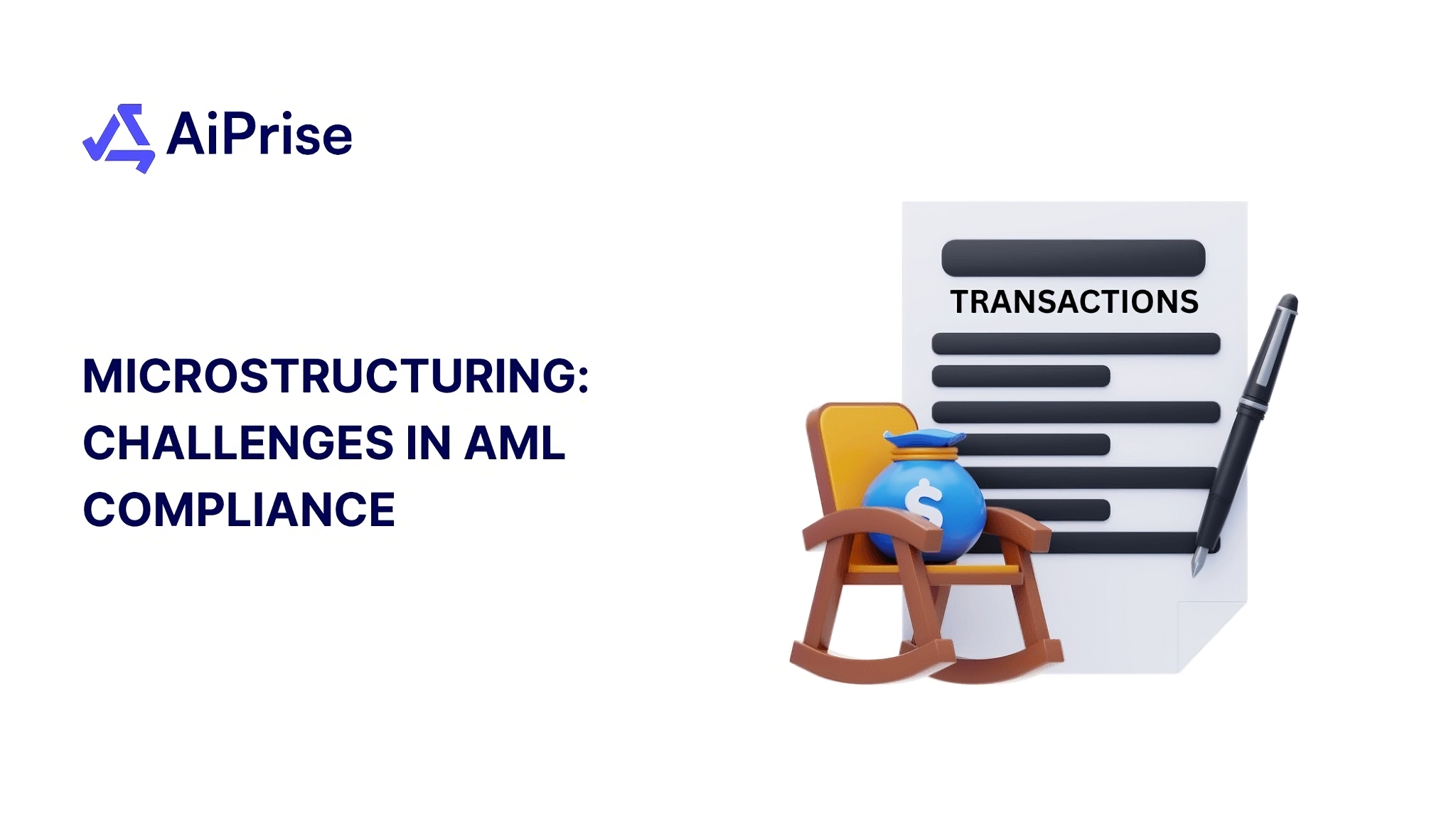

.png)
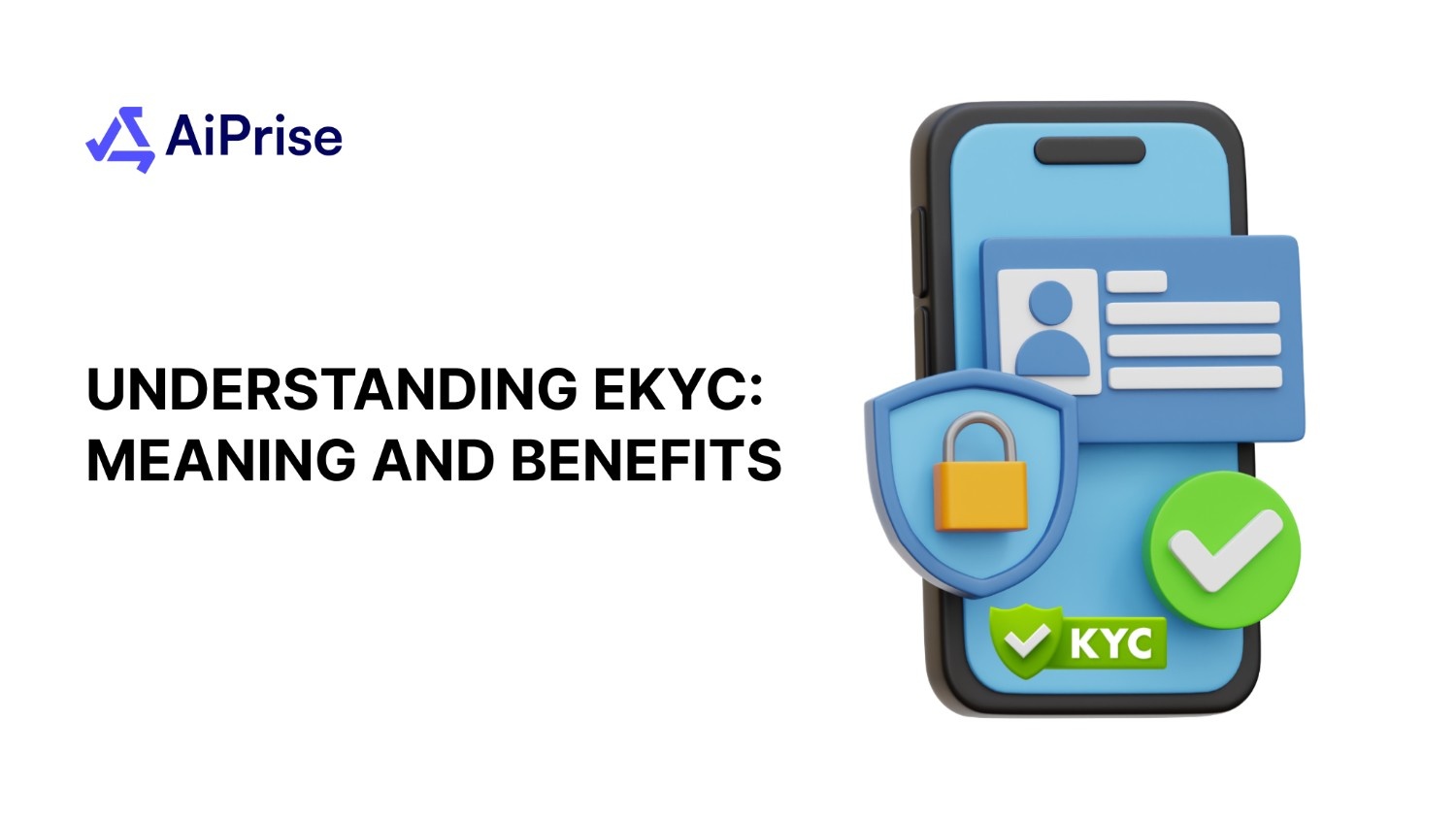
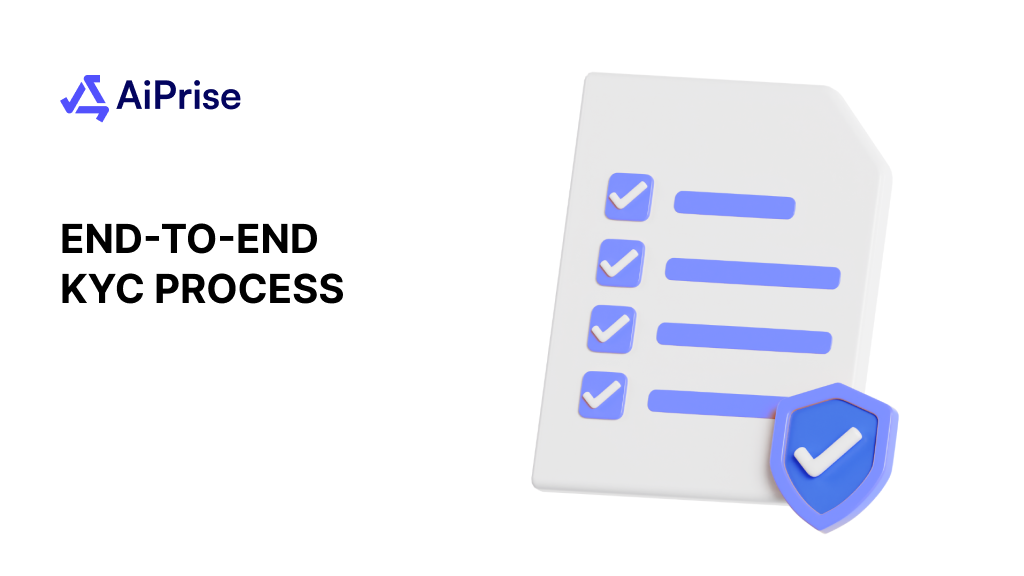
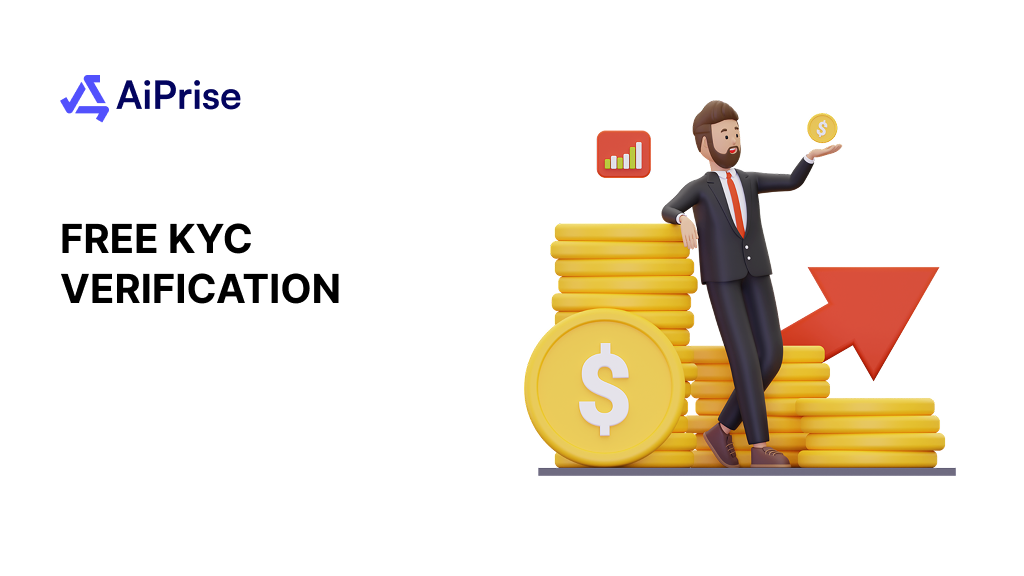
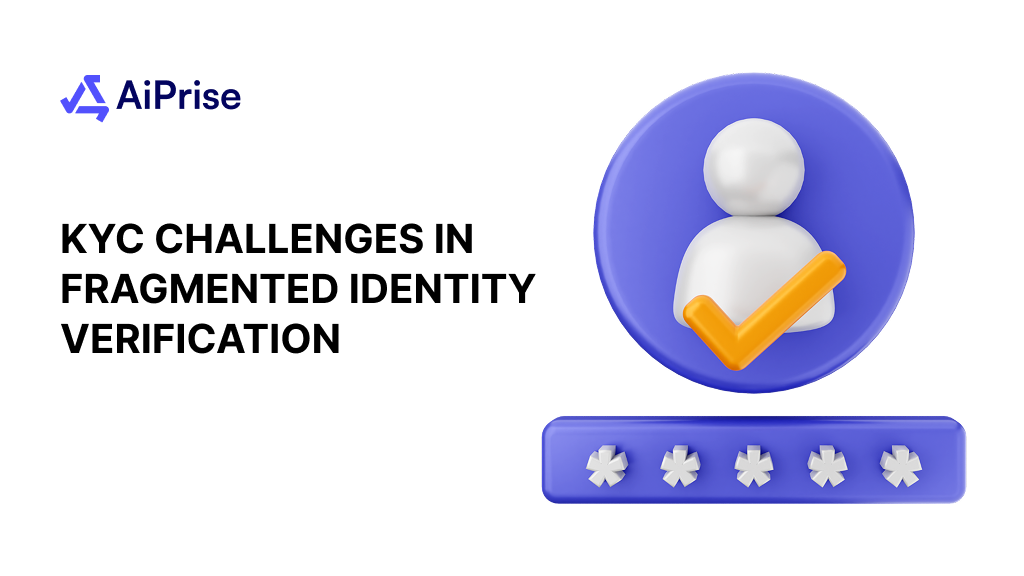

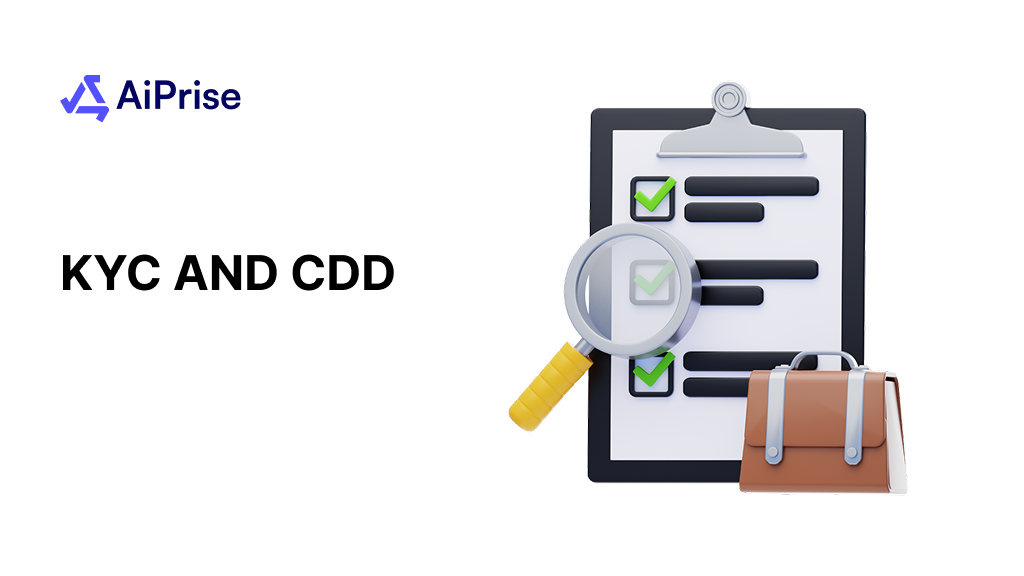










.png)






